Sectoral reforms vital to spur business growth

It is encouraging to read the latest World Bank Group report on investment prospects in Bangladesh. Prepared by the group's International Finance Corporation (IFC) and unveiled at the ongoing Bangladesh Investment Summit on Tuesday, the report identifies four strategic sectors—green ready-made garments (RMG), middle-class housing, paint and dyes, and digital financial services—as ripe for reform. These sectors, it argues, are mature and politically feasible enough to be restructured in ways that could create millions of jobs, draw both local and foreign investment, and spark a ripple effect of productivity in other interconnected sectors. The question is, can we do what's needed to bring about this change?
In recent days, there has been much talk about Bangladesh's investment scenario with the government taking steps to woo global investors. The four-day summit, somewhat overshadowed by concerns surrounding the new US tariff policy, which went into effect on April 9, is meant to provide a boost in this regard. For this, reforms are essential even while new deals and commitments are being made. With proper reforms, the WB report estimates, the construction sector alone could add over two million jobs annually by supporting new housing developments for middle-income families. A further 664,000 formal jobs could be generated by expanding local production of paint and dyes. Targeted interventions in digital financial services could also yield between 96,000 and 400,000 additional jobs.
However, achieving such outcomes requires addressing long-standing barriers to doing business in Bangladesh, such as erratic power supply, high prevalence of informal economy, high borrowing costs, our complex and inefficient tax regime, and other bureaucratic challenges. In its report, the WB also provides a roadmap of actionable reforms for the four sectors it singled out. These findings and recommendations, however, are not new. In the past, experts have often highlighted many barriers to trade and investment such as corruption, anti-competitive procurement practices, customs inefficiencies, etc. Sadly, successive governments have failed to seriously act on such findings and recommendations. Bureaucratic inertia, political instability, and weak institutional coordination frequently came in the way of progress. One statistic that can aptly portray its effect is that, while global foreign direct investment (FDI) fell by less than two percent in 2023, FDI inflow to Bangladesh dropped by nearly 14 percent.
Can the interim government do things differently? It must. As Chief Adviser Muhammad Yunus has said at the summit, Bangladesh is a country of "crazy ideas" that investors can trust in going forward. But ideas alone are not enough. We need meaningful transformation. We need the government to not only listen to experts but also act decisively on their counsel. It is up to the present policymakers to bring about much-needed change in prevailing business and bureaucratic practices so that Bangladesh can fulfil its potential.


 For all latest news, follow The Daily Star's Google News channel.
For all latest news, follow The Daily Star's Google News channel. 
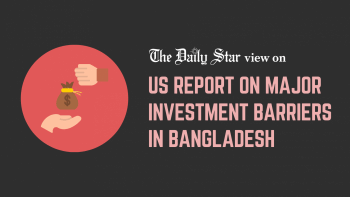


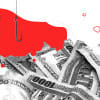
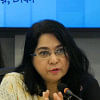
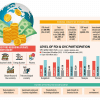

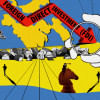


Comments